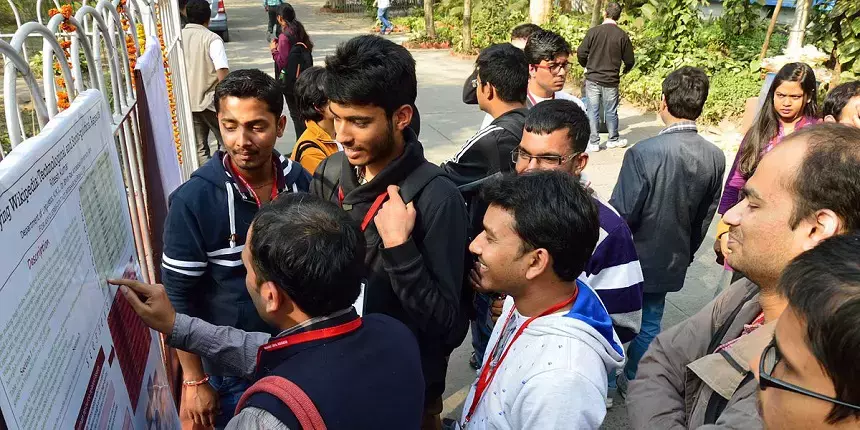The National Eligibility cum Entrance Test (NEET) is an essential examination for aspiring medical students in India. Introduced to streamline the admission process for undergraduate medical programs, NEET serves as a crucial single-window assessment, enabling candidates to compete for seats in various medical colleges across the country. NEET has been pivotal in maintaining a standard evaluation system for students seeking medical education, ensuring that admissions are based on merit and academic readiness. This examination assesses knowledge in subjects such as Physics, Chemistry, and Biology, which are fundamental to a strong foundation in medicine.
NEET Mandatory for Studying Medicine
The implications of NEET extend beyond the domestic landscape. With an increasing number of Indian students looking to pursue medical degrees abroad, NEET has emerged as a critical requirement even in foreign institutions. Universities in countries like Russia, Ukraine, and China now recognize NEET scores, making it easier for students to gain admission to their medical programs. This integration of NEET into international education reflects a growing acknowledgment of the need for standardized evaluations in the medical field, ensuring that students possess the necessary knowledge to excel in their future careers.
Concerns surrounding the implementation of NEET have sparked legal debates and challenges, primarily focusing on its fairness and accessibility. Critics argue that the examination may disproportionately affect students from rural backgrounds who may have limited resources to prepare for such competitive assessments. These concerns have prompted discussions about the importance of providing equitable opportunities for all aspiring medical students, both in India and abroad. NEET, while serving as a necessary evaluation tool, has highlighted the need for continued improvements in educational infrastructure and support systems to foster a more inclusive medical education environment.
The Supreme Court’s Verdict : NEET Mandatory for Studying Medicine
In a significant ruling, the Supreme Court of India has mandated that the National Eligibility cum Entrance Test (NEET) is essential for Indian students aspiring to pursue medical education abroad. This decision underscores the court’s commitment to ensuring that students receive quality education and possess the necessary competencies in medical practice. The ruling emerges from concerns regarding the proliferation of substandard medical institutions overseas, which can potentially compromise the education and welfare of students.
The court articulated that a standardized test like NEET serves as a benchmark for assessing the capabilities of aspiring medical students. It aims to uphold the quality of medical education that Indian students receive, even when they opt for institutions located outside India. By requiring NEET scores, the court believes that it will help elevate the standards of medical institutions abroad and promote a more rigorous selection process, thus enabling students to achieve a competent level of medical expertise upon graduation.
Another critical aspect highlighted by the Supreme Court was the responsibility of ensuring that Indian students are adequately protected from misleading information about foreign medical schools. The court’s ruling aims to filter out institutions that do not meet educational standards, thereby safeguarding students from enrolling in subpar colleges that could hinder their future careers as healthcare professionals.
The implications of this ruling are far-reaching. Students now face a constraint on their choices of medical schools abroad and must prioritize institutions recognized by Indian regulatory bodies. This decision may encourage aspiring medical students to stay informed about international options and scrutinize foreign institutions more rigorously. As a result, the landscape of international medical education is likely to undergo transformations as students seek to align with the evolving requirements set forth by the Indian legal framework.
NEET Mandatory for Studying Medicine Students and Educational Institutions
The recent Supreme Court ruling mandating the National Eligibility cum Entrance Test (NEET) as a prerequisite for studying medicine abroad has profound implications for various stakeholders, particularly students, parents, and educational institutions. For students aspiring to pursue medical education outside India, this ruling fundamentally alters their planning and preparation strategies. Many of these aspirants previously relied on alternative pathways that did not require NEET, often choosing countries with more lenient admission criteria. With NEET now being compulsory, students will need to dedicate time and resources to prepare for this competitive examination, which could affect their overall readiness for medical school.
Parents of medical aspirants may also face increased pressure as they navigate the new landscape. With NEET becoming a mandatory requirement, parents must ensure that their children receive adequate coaching and support to excel in the examination. This may involve significant financial investment in preparatory courses and study materials, potentially leading to a reevaluation of family budgets and priorities.
From the perspective of educational institutions abroad, the ruling may lead to shifts in enrollment dynamics. Many foreign medical colleges that previously attracted a significant number of Indian students may now face declines in applications as students reassess their plans due to the additional requirement. Conversely, institutions may respond by developing specialized programs or partnerships aimed at helping Indian students prepare for NEET, thereby enhancing their appeal to this demographic.
Ultimately, the Supreme Court decision requires students and educational institutions to adapt proactively to a new framework for medical education abroad. Students must refine their preparation strategies to integrate NEET into their study plans, while institutions must respond to the changing needs and expectations of Indian students in a more competitive global education marketplace.
Future of Medical Education in India and Beyond
The recent Supreme Court ruling mandating the National Eligibility cum Entrance Test (NEET) for students aspiring to study medicine abroad signifies a pivotal shift in the medical education landscape. As we consider the future of medical education in India and beyond, it is essential to acknowledge the complexities surrounding the regulation of foreign medical studies. Primarily, this ruling aims to enhance the quality assurance of foreign institutions, ensuring that Indian students receive education that meets acceptable standards, thereby protecting public health outcomes in India.
NEET Mandatory for Studying Medicine : Indian students often choose to study medicine abroad due to perceived deficiencies in local educational options. The Supreme Court’s decision is expected to compel both the Indian medical education system and foreign institutions to raise their standards. It encourages a unified approach to addressing the quality of education, which includes the integration of updated curricula, competent faculty, and adequate practical training facilities in both domestic and foreign medical colleges.
Moreover, this ruling has implications for public health and medical standards in India. By prioritizing NEET, the emphasis on securing a competent workforce for the healthcare system becomes paramount. It fosters a debate on the necessity for reform within the Indian education landscape, prompting authorities to explore comprehensive strategies that not only improve domestic medical education but also incentivize students to pursue their degrees within India. This reversal of idealism regarding foreign education could lead to the establishment of compelling alternatives locally, focusing on holistic development, research opportunities, and international collaborations.
NEET Mandatory for Studying Medicine : In order to retain aspiring medical students within the Indian education system, it is essential to create an environment conducive to learning and professional growth that rivals international standards. Such reforms could play a significant role in shaping the future of medical education, ensuring that Indian medical professionals are well-equipped to meet the country’s healthcare demands effectively.





